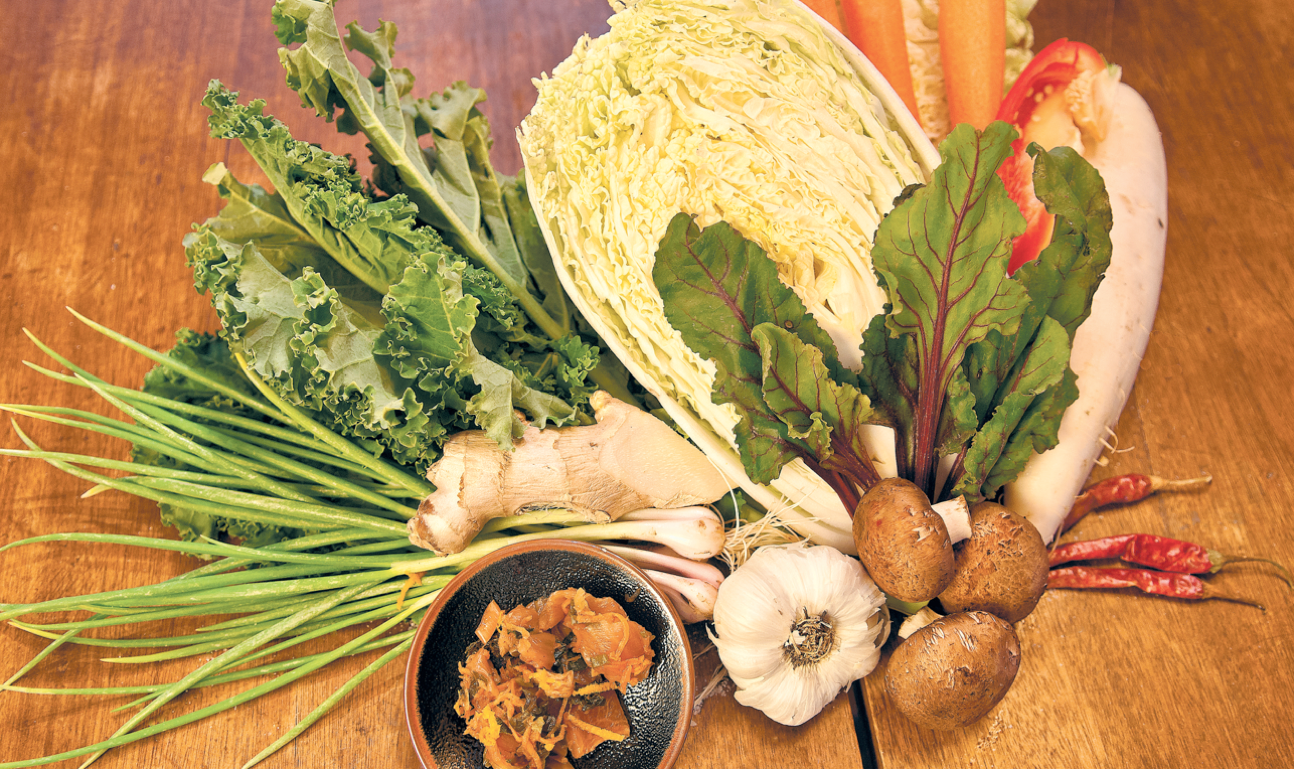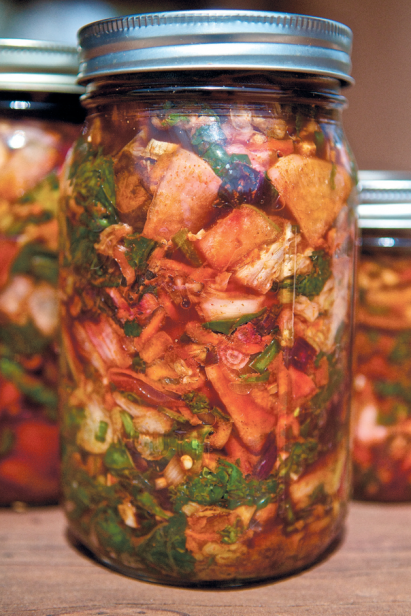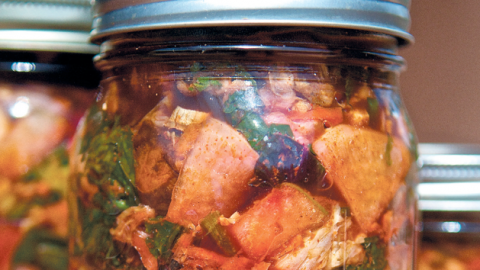East Meets Southwest: Kimchi Adds Wow! Factor to Cabbage
"To ferment your own food is to lodge a small but eloquent protest – on behalf of the senses and the microbes – against the homogenization of flavors and food experiences now rolling like a great, undifferentiated lawn across the globe. It is also a declaration of independence from an economy that would much prefer we remain passive consumers of its standardized commodities, rather than creators of idiosyncratic products expressive of ourselves and of the places where we live, because your pale ale or sourdough bread or kimchi is going to taste nothing like mine or anyone else's."
– Michael Pollan, Cooked: A Natural History of Transformation
Kimchi is the Korean national dish that I have adapted and adopted into my home. In my kitchen I honor the traditional dish with ginger, chili and garlic, but I use Southwest chili powder instead of cayenne. I add whatever vegetables are coming out of my garden at the time: mushrooms, broccoli, asparagus, chayote, green tomatoes or even beets.
My belly has adopted kimchi. I get this WOW! on the inside. It just feels so right down to my core. Kimchi has been proclaimed as one of the world's healthiest foods. It's loaded with lactobacilli (kimchi has four times more lactobacilli than yogurt.) Plus, it has other "good bacteria" that contribute greater variety and effectiveness than you'd get in any probiotic supplement. Kimchi is high in vitamins C and A, fiber, antioxidants and phytochemicals. It makes minerals more bioavailable. Research suggests it may help prevent cancer, strengthen the immune system, protect against colds and flu, decrease cholesterol and slow down aging.
There's a lot going on with the synergistic relationship between the fermented vegetables, spices and beneficial bacteria.
And that's not all – it's good for your brain as well as your guts, according to research published in the Journal of Physiological Anthropology:
"It is our contention that properly controlled fermentation may often amplify the specific nutrient and phytochemical content of foods, the ultimate value of which may be associated with mental health; furthermore, we also argue that the microbes (for example, lactobacillus and bifidobacteria species) associated with fermented foods may also influence brain health via direct and indirect pathways."
My guts go WOW! My brain goes WOW!








